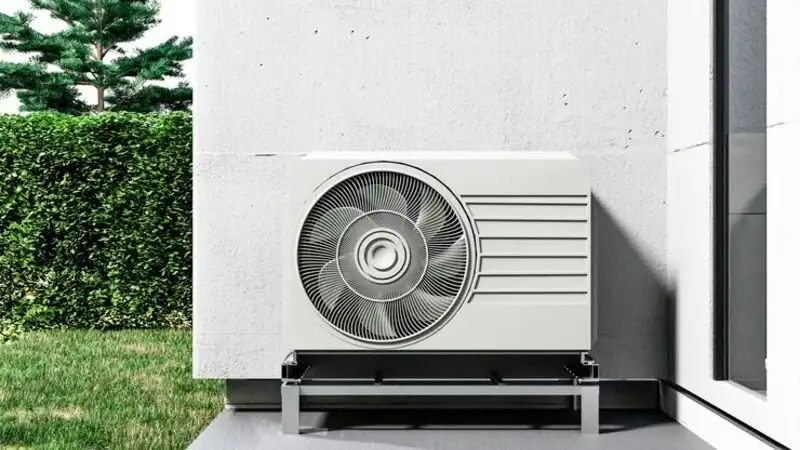Key Takeaways
- Understand the importance of regular maintenance to improve the efficiency and lifespan of Home’s Heating and Cooling Systems.
- Learn practical tips for maintaining both heating and cooling systems throughout the year.
- Discover how professional inspections can prevent costly repairs and increase energy savings.
Why Regular HVAC Maintenance Matters
Maintaining your heating and cooling systems is more than a yearly task—it’s necessary for a comfortable home. Routine upkeep ensures your HVAC system operates efficiently, cutting costs on energy usage and prolonging unit lifespan. For instance, integrating whole house humidifiers can optimize air quality and system performance by balancing humidity levels throughout the various seasons.
HVAC systems that lack regular maintenance can suffer from reduced functionality, leading to higher repair costs and discomfort within your home. Simple steps such as replacing filters and inspecting ductwork can improve your system’s efficiency by up to 15%. This improves indoor comfort and dramatically decreases the stress on your HVAC equipment, ultimately extending its lifespan.
Seasonal Maintenance Tips
Spring and Summer
- Check Air Filters: It is recommended that they be changed or cleaned every 1—3 months to maintain good airflow and air quality. Blocked filters can cause the system to operate with more effort, lowering effectiveness and raising energy usage.
- Inspect Ductwork: Look for leaks or obstructions that impede airflow and reduce efficiency. Sealing leaks can improve airflow and ensure cool air is evenly distributed throughout the home.
- Clean Condenser Coils: Remove debris and clean the outdoor unit to improve efficiency and prevent overheating. Dirty coils can significantly reduce your system’s cooling power, leading to higher energy bills and potential system failures.
- Test Thermostat: Ensure your thermostat is adjusted to the right temperature for the time of year to prevent straining your system. Using programmable thermostats can optimize cooling schedules and save on energy costs.
Fall and Winter
- Inspect Heating Elements: Ensure all heating elements work correctly before the first cold snap to avoid emergency repairs. Routine inspections can identify issues like faulty igniters or malfunctioning pilot lights.
- Clean the Furnace: Remove any dust or debris that could cause inefficiency or safety hazards. This includes checking for rust or corrosion. A clean furnace operates more efficiently and reduces the risk of fire hazards.
- Seal Drafts: Inspect for and caulk any gaps around windows and doors to retain heat and decrease energy loss. Weatherstripping and caulking are easy but efficient ways to improve insulation in homes.
- Test Carbon Monoxide Detectors: Ensure these vital safety devices are functioning correctly, as they can prevent serious health hazards. Carbon monoxide leaks are dangerous and often undetectable without a proper alarm system.
The Benefits of Professional Inspections
Although DIY maintenance is crucial, professional inspections bring an added layer of security and expertise. Technicians can spot potential issues that go unnoticed by homeowners, such as minor leaks, electrical problems, or wear on essential components. A yearly check can catch these problems early, avoiding costly repairs later.
Additionally, professional maintenance often includes services homeowners may need the tools or knowledge to perform themselves. This can consist of advanced diagnostics, refrigerant level checks, and detailed cleanings of internal components. Routine professional inspections ensure your HVAC system remains in peak condition, providing reliable performance and high energy efficiency.
Signs You Need an HVAC Checkup
While regular maintenance can mitigate many issues, sometimes your system will show signs that it needs attention sooner. Common indicators include strange noises, unusual smells, inconsistent temperatures, and high energy bills. Ignoring these signs can lead to more severe problems, including complete system failures and costly emergency repairs.
Strange noises, like grinding or squealing, often indicate issues with mechanical components that require immediate attention. Unusual smells could be a sign of mold in the ductwork or a gas leak, both of which are hazardous. Fluctuating temperatures suggest thermostat problems or airflow blockages while spiking energy bills can point to a system working harder than necessary due to underlying issues. If you notice any of these signs, it’s crucial to schedule an inspection promptly.
Energy Efficiency and Cost Savings
A well-maintained HVAC system performs better and uses less energy. Efficient systems can reduce energy use by up to 30%, which translates to significant savings on utility bills and contributes to a more sustainable environment.
Implementing energy-efficient practices such as regular maintenance, using programmable thermostats, and upgrading to energy-efficient models when necessary can substantially impact your household’s overall energy consumption. Lower energy usage benefits your wallet, reduces the demand on power plants, and decreases greenhouse gas emissions, supporting broader environmental goals.
Environmental Impact
Besides cost savings, an efficiently running HVAC system is better for the environment. Lower energy consumption reduces greenhouse gas emissions, a win-win for your wallet and the planet. You play an active role in combatting climate change by ensuring your system operates smoothly and effectively.
Adopting eco-friendly habits like regular maintenance can contribute to a healthier planet, showcasing how individual actions can collectively make a significant difference.
Conclusion
Regular maintenance of your heating and cooling systems is crucial for a comfortable, efficient, and eco-friendly home. By following these guidelines and scheduling professional inspections, you can ensure your HVAC system runs smoothly throughout the year, saving you time and money. A proactive approach to HVAC maintenance helps maintain consistent indoor comfort, reduces the likelihood of unexpected breakdowns, and contributes to a sustainable future. Embrace these practices to enjoy a cozy home environment while contributing to a healthier planet. Regular upkeep is not just a task but an investment in your home’s long-term performance and your family’s well-being.
